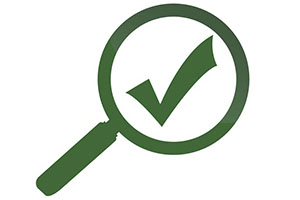 It has been said that translation is more of an art than a science. Though aspects of translation require craftsmanship, the procedures and protocols of carrying out quality work have important parameters. When selecting a translation partner, you want to ensure quality standards and protocols are in place but how can you insure this?
It has been said that translation is more of an art than a science. Though aspects of translation require craftsmanship, the procedures and protocols of carrying out quality work have important parameters. When selecting a translation partner, you want to ensure quality standards and protocols are in place but how can you insure this?
ISO 9001 and 17100
One method for ensuring quality is to look for a partner who has obtained an ISO certification. The International Organization for Standardization promotes worldwide proprietary, industrial and commercial standards. Two certifications which apply to the translation industry are the 9001 and the 17100.
Many are aware of the ISO 9001 which is an international standard of a quality management system. A quality management system (QMS) is a set of policies, processes and procedures required for planning and execution in the core business area of an organization. Production, development and service protocols impact an organization’s ability to meet customer requirements.
The ISO 17100 is a new internationally recognized standard for the translation industry which addresses requirements related to the essential processes for providing quality translations services including the capabilities of the company’s resources. Machine translation and interpretation protocols are not included in 17100.
The 17100 not only evaluates an efficient management system but also assesses file security, staff development and general working practices. An independent ISO audit is required to maintain and ensure adherence to these specifications.
LISA
The Localization Industry Standards Association or LISA was an organization based on standards created to address the translation of computer software into different languages. Though LISA is no longer an active organization, their work still drives many translation and localization standards. Adobe, IBM, Cisco, HP and Xerox were members. LISA represented its partners at the International Organization for Standardization. The Termbase eXchange (TBX) was developed by LISA, which became an ISO standard. Many LISA standards are used by the OASIS Open Architecture of XML Authoring and Localization.
LISA’s quality control system involves a series of ratings. There is a scoring system with levels set for translation style, accuracy, consistency and language rules. LISA is also used during the localization process. Localization applies to adapting websites, apps, videogames and other translated texts to fit a target audience’s culture and style.
QA the QA
Though these are a few standard control systems that translation companies rely upon, they are not the only ones in use. A thorough question and answer assessment of a translation provider about their quality assurance will uncover the protocols and procedures in place to ensure your company receives quality deliverables.
_____________________________
Terralingua is an ISO 9001 and 17100 certified professional translation agency utilizing LISA standards. If you would like to know more about our services, or you need help with a translation project, please visit our website for further details.
